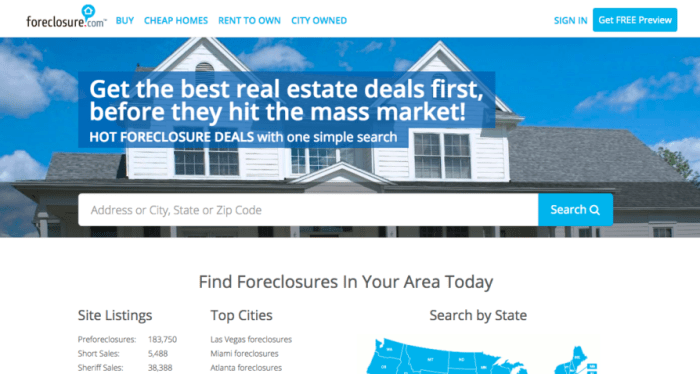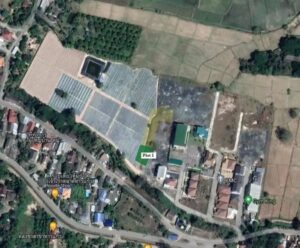Real estate foreclosure listings are crucial components of the housing market, representing properties that have been repossessed by lenders due to the previous owner's failure to make mortgage payments. These listings are significant as they often provide opportunities for buyers to purchase properties at reduced prices. The compilation and maintenance of foreclosure listings typically involve coordination between lenders, real estate agents, and various online platforms that aggregate this data.
Foreclosure listings are created from various sources, including court documents, lender reports, and public records. Unlike traditional real estate listings, which may include homes for sale by owners or real estate agents, foreclosure listings focus specifically on properties that have entered the foreclosure process. This distinction makes foreclosure listings particularly valuable for investors and homebuyers looking for potential bargains.
Benefits of Using Online Foreclosure Listings
Accessing foreclosure listings online offers numerous advantages over traditional methods. The convenience of searching from anywhere at any time allows potential buyers to explore a broader range of properties. Online platforms often feature user-friendly interfaces that allow for quick filtering based on specific criteria such as location, price, and property type.
To effectively navigate these online platforms, it is essential to understand the functionalities available. Utilizing filters, saving searches, and setting up alerts for new listings can enhance the search experience. Reputable online foreclosure listing services typically exhibit features such as comprehensive property details, high-quality images, and updated information regarding the status of each listing.
Types of Foreclosure Listings Available
Foreclosure listings come in several varieties, each with unique characteristics. The primary types include bank-owned properties, pre-foreclosures, and properties slated for auction.
| Type of Foreclosure | Description | Features |
|---|---|---|
| Bank-Owned Properties | Properties that have been repossessed by banks. | Often available at discounted prices, cleared of debt. |
| Pre-Foreclosures | Properties that are in the early stages of foreclosure. | Potential for negotiation with the current owner. |
| Auction Properties | Properties sold at auction typically due to foreclosure proceedings. | Bidding process, potential for competitive pricing. |
Regional variations in foreclosure listings are significant, as some areas may have higher rates of foreclosure due to economic factors. Online availability can fluctuate based on local regulations and the presence of active real estate markets.
Steps to Access Online Foreclosure Listings
To access online foreclosure listings effectively, follow these steps:
1. Identify reputable websites that specialize in foreclosure listings.
2. Create an account on the platform to unlock full features.
3. Use search filters to narrow down properties by location, price, and type.
4. Save searches and set up alerts to receive notifications of new listings.
5. Review property details carefully to assess condition and potential value.
Best practices for searching include utilizing advanced search options and keeping an eye on newly listed properties. Recommended websites for finding foreclosure listings include industry-specific platforms and regional real estate websites.
Analyzing Online Foreclosure Listings
Evaluating the quality and accuracy of online foreclosure listings involves scrutinizing several key factors. Prospective buyers should assess the credibility of the listing service, the completeness of property details, and the availability of photographs or virtual tours. Important considerations include the property's location, condition, and potential resale value, as well as any outstanding debts or liens associated with the property.
Gathering additional information on properties can involve research through public records, local tax assessments, or by contacting real estate agents who specialize in foreclosures.
Challenges in Online Foreclosure Listings
Despite the advantages of online foreclosure listings, users often encounter challenges such as outdated information, misleading property descriptions, and competition from other buyers. Strategies to overcome these challenges include verifying listing details through multiple sources, staying informed about local foreclosure trends, and being prepared to act quickly when a desirable property is found.
Case studies of successful navigation through these challenges highlight the importance of persistence and thorough research in securing a property at the right price.
Legal Considerations for Foreclosure Listings
Purchasing a foreclosure property carries specific legal implications that buyers must understand. The bidding process can involve risks, including the possibility of hidden costs or unresolved liens. Essential documents and disclosures needed when engaging with foreclosure listings include title reports, property condition disclosures, and any agreements from previous owners.
Ensuring that all legal aspects are thoroughly reviewed can safeguard buyers from future complications associated with their purchase.
Future Trends in Online Foreclosure Listings, REAL ESTATE FORECLOSURE LISTINGS ONLINE
Emerging technologies are poised to significantly impact how foreclosure listings are accessed and utilized. Advances in artificial intelligence and machine learning may soon facilitate more personalized search experiences, while blockchain technology could enhance transparency in property transactions.
Changing market dynamics, such as fluctuations in interest rates or economic conditions, will also affect the availability and pricing of foreclosure listings. A table predicting trends in the foreclosure market suggests a potential increase in online foreclosure transactions as buyers become more comfortable with digital platforms and as technology continues to evolve.




